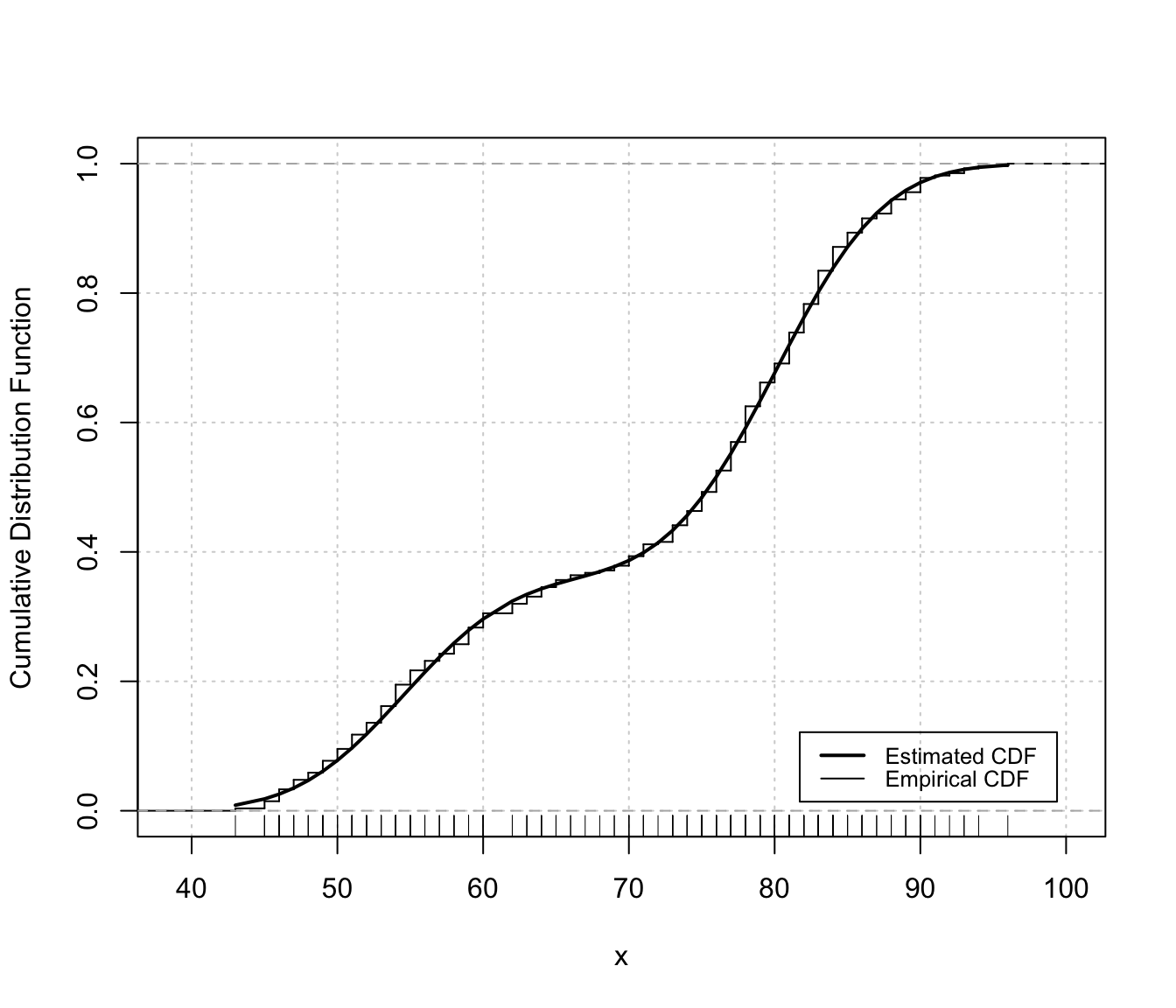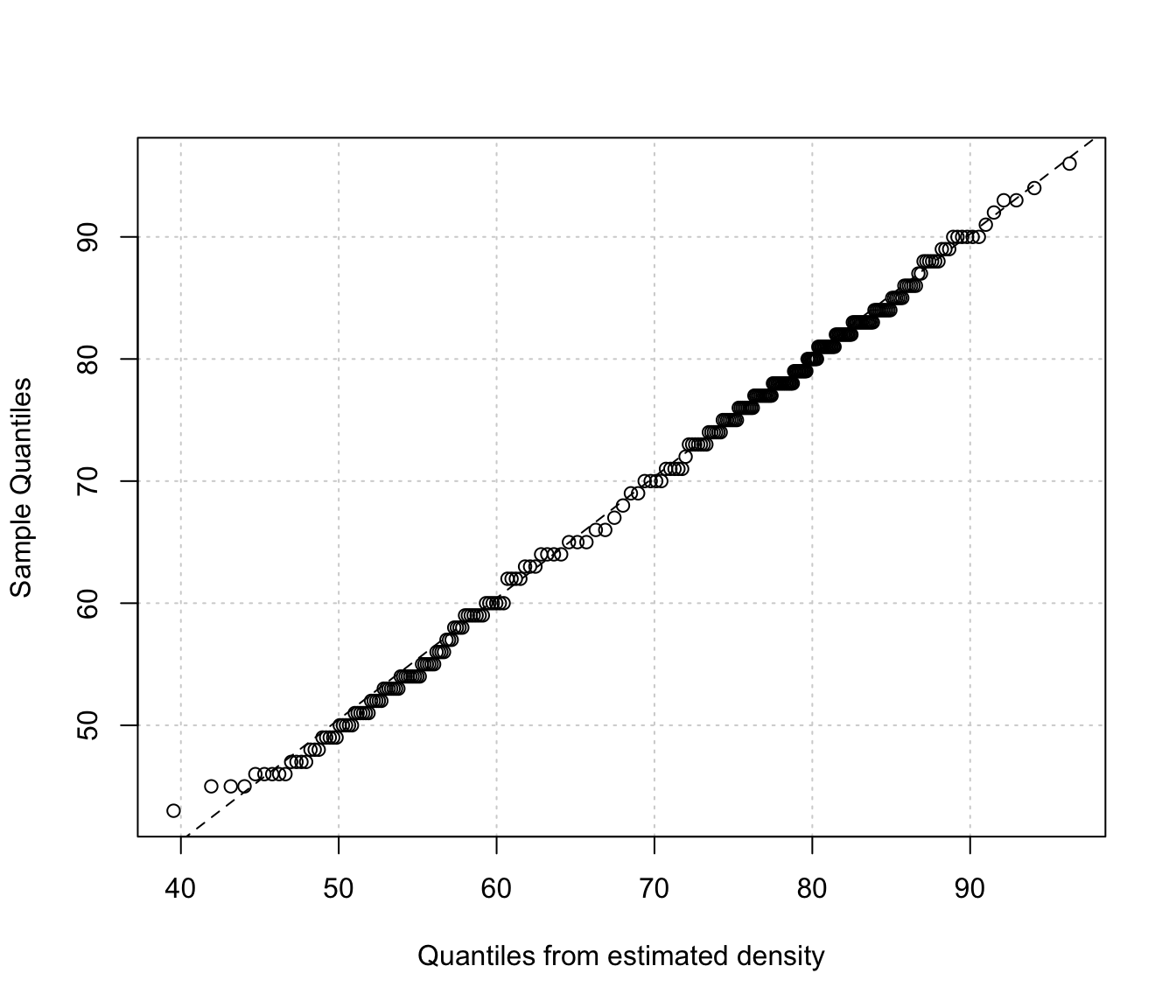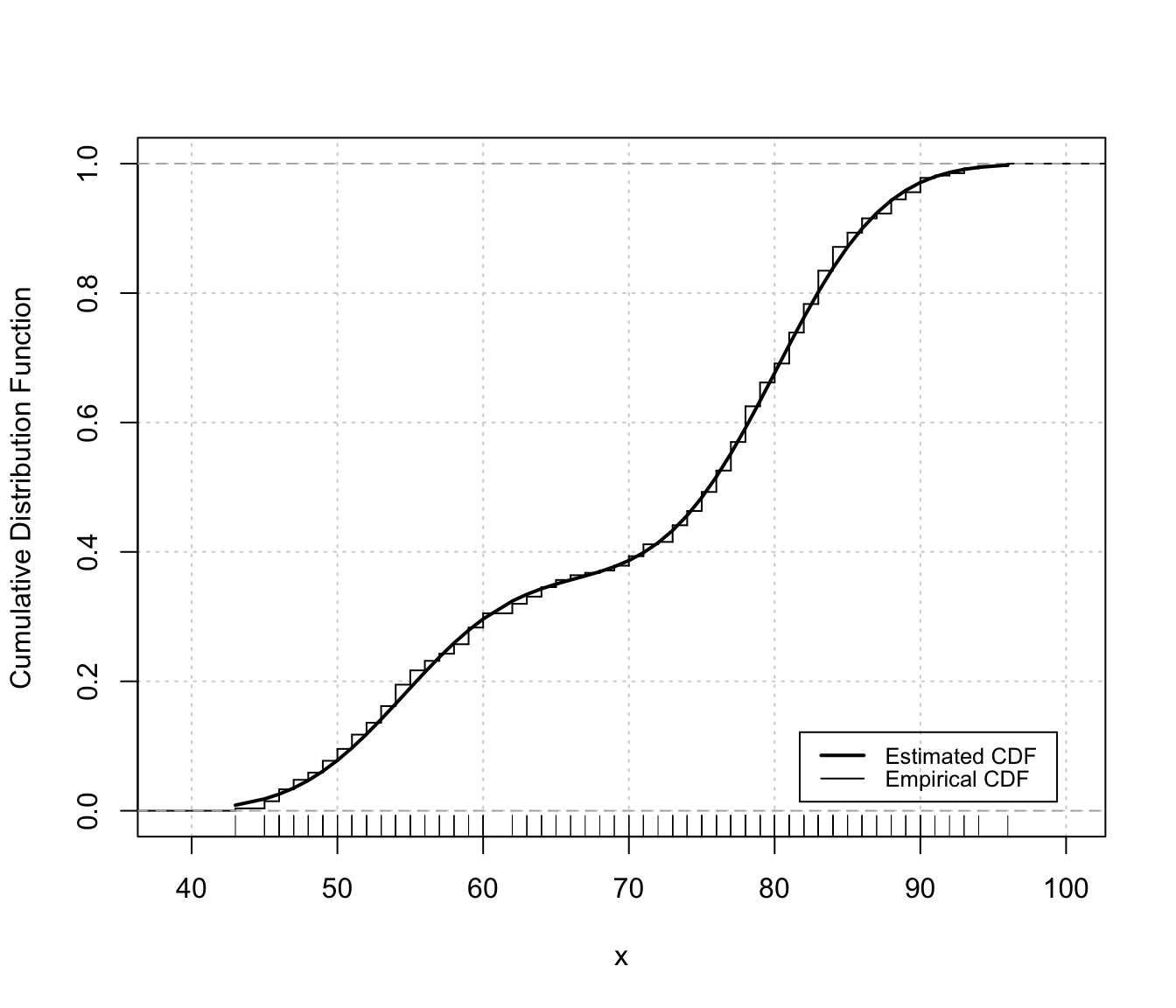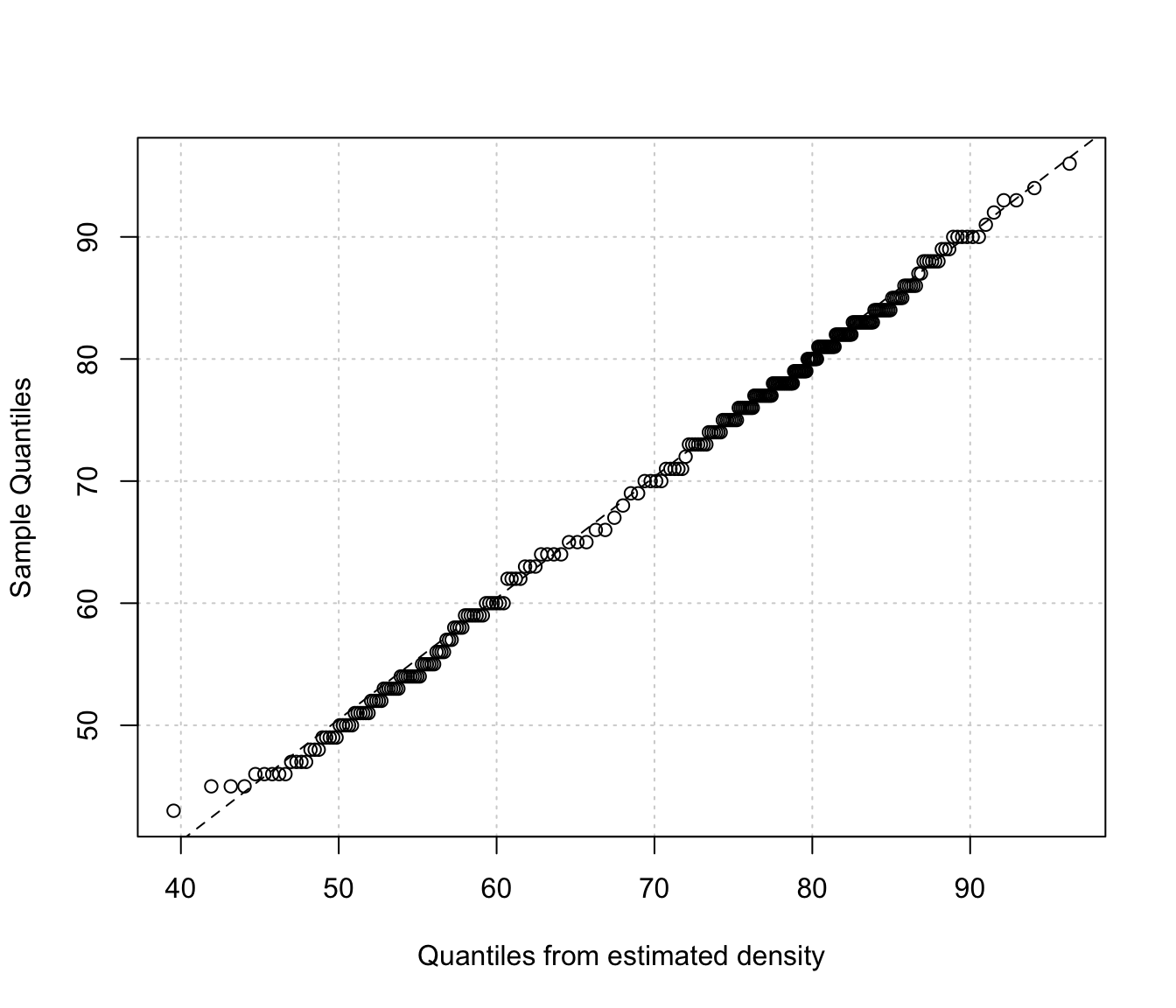
Diagnostic plots for mclustDensity estimation
densityMclust.diagnostic.RdDiagnostic plots for density estimation. Only available for the one-dimensional case.
Arguments
- object
An object of class
'mclustDensity'obtained from a call todensityMclustfunction.- type
The type of graph requested:
"cdf"=a plot of the estimated CDF versus the empirical distribution function.
"qq"=a Q-Q plot of sample quantiles versus the quantiles obtained from the inverse of the estimated cdf.
- col
A pair of values for the color to be used for plotting, respectively, the estimated CDF and the empirical cdf.
- lwd
A pair of values for the line width to be used for plotting, respectively, the estimated CDF and the empirical cdf.
- lty
A pair of values for the line type to be used for plotting, respectively, the estimated CDF and the empirical cdf.
- legend
A logical indicating if a legend must be added to the plot of fitted CDF vs the empirical CDF.
- grid
A logical indicating if a
gridshould be added to the plot.- ...
Additional arguments.
Details
The two diagnostic plots for density estimation in the one-dimensional case are discussed in Loader (1999, pp- 87-90).
References
Loader C. (1999), Local Regression and Likelihood. New York, Springer.
Scrucca L., Fraley C., Murphy T. B. and Raftery A. E. (2023) Model-Based Clustering, Classification, and Density Estimation Using mclust in R. Chapman & Hall/CRC, ISBN: 978-1032234953, https://mclust-org.github.io/book/
Examples
# \donttest{
x <- faithful$waiting
dens <- densityMclust(x, plot = FALSE)
plot(dens, x, what = "diagnostic")

 # or
densityMclust.diagnostic(dens, type = "cdf")
# or
densityMclust.diagnostic(dens, type = "cdf")
 densityMclust.diagnostic(dens, type = "qq")
densityMclust.diagnostic(dens, type = "qq")
 # }
# }